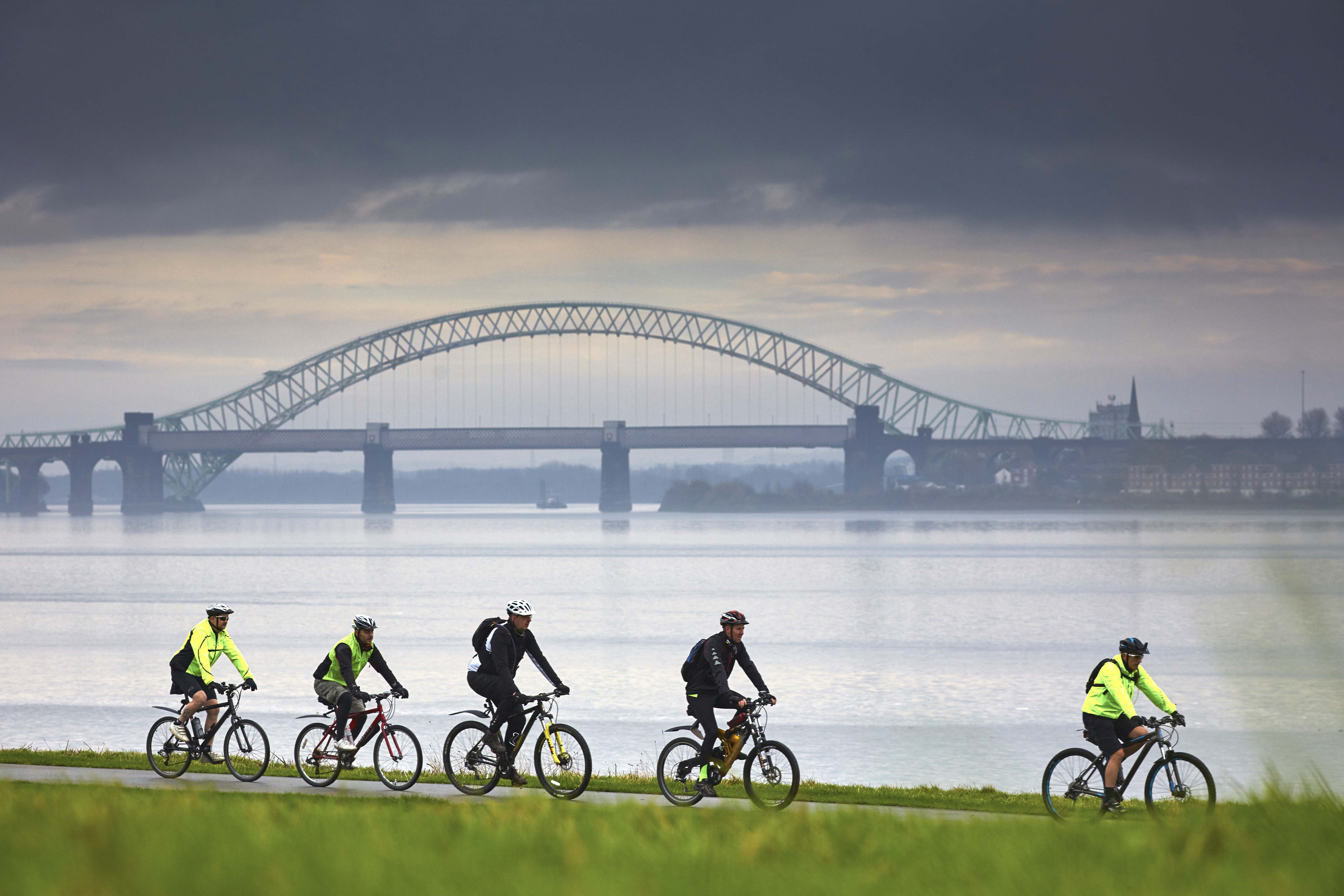Work is set to begin in Halton on the first phase of a potential 600km key network of cycling and walking routes across the Liverpool City Region.
Metro Mayor, Steve Rotheram, and the Liverpool City Region Combined Authority ratified the £8.3m funding for the first 55km phase of the network– including a Sefton route– at its meeting on Friday (14th December).
The 7.4km route between Prescot and Runcorn will link key employment and housing sites at Halsnead and Cronton Colliery with Widnes and Runcorn over the refurbished Silver Jubilee Bridge.
The proposed 600km cycling and walking network is based on upgrades to around 31 key routes across the Liverpool City Region over the next 10 years.
Cllr Stan Hill, Halton Council’s portfolio holder for Transportation, welcomed the funding: “Halton will benefit from this investment by improving the sustainable links between North Widnes to the Silver Jubilee Bridge by formalising a cycle and walking route via Victoria Park, whilst also creating a green corridor towards Widnes Town Centre.
“This work complements the wider investment to create an attractive cycling and walking network for the residents and visitors to the borough.”
The network will be planned on a whole city region basis, both improving links to the public transport network and between residential areas, employment, training and retail sites.
Meanwhile, work is already underway on bidding for funding for the next phase of the network with the launch of a questionnaire on people’s cycling and walking habits to help shape what a wider network would look like. It can be accessed here <link> https://www.arrivehappy.org/our-cycling-and-walking-masterplan[SL1]
Two thirds of all journeys in the city region are less than five kilometres but half of those are made by car. Through the Local Journeys Strategy, Steve Rotheram and the Combined Authority recognise that getting the infrastructure right is key to encouraging people out of their cars, particularly for shorter journeys.
The cycling and walking network is one of the first actions bringing the Local Journeys Strategy to life. Making places walking and cycling-friendly not only reduces congestion, improves air quality and brings significant health benefits, it also has wider economic benefits – boosting inward investment and attracting new talent by helping create the places that people want to live and work in.
Said Metro Mayor, Steve Rotheram: “We are at a pivotal stage in transforming provision for cycling and walking. Getting the infrastructure right to make it a real choice for more people means less congestion, cleaner air and better health. There are also wider benefits to the economy. Safe, pleasant cycling and walking areas, linking well to public transport and key locations, help create those places where people want to live, work and invest. And if you are walking or cycling you are not sitting in traffic clocking up lost working hours– something that benefits employees and employers.
“We want people across the city region to tell us about what would get them cycling and walking more, so the network we develop is built for them. We can’t transform the situation overnight, but devolution gives us the powers to plan strategically to improve facilities for walking and cycling across the city region, putting our investment in the right places so we can make a difference.”
This first 55km phase of the network is expected to be completed by the end of 2020, with each local authority responsible for the works in their area. The programme will also see the management of new wood and grassland areas and the planting of trees alongside the routes. In addition, the funding will support a new pilot project by Liverpool John Moores University, trialling innovative methods of collecting cycle and walking trip data and the development of a cycling app and journey planner.
The LCR Transport Partnership was successfully awarded £8.3m ERDF Sustainable Urban Development (SUD) funding for the first phase of the cycling and walking network, with the LCR Combined Authority giving approval to draw down this funding. Match funding for the project is being sought from the Transforming Cities Fund and other contributions will come from the LCR CA’s constituent local authorities.

